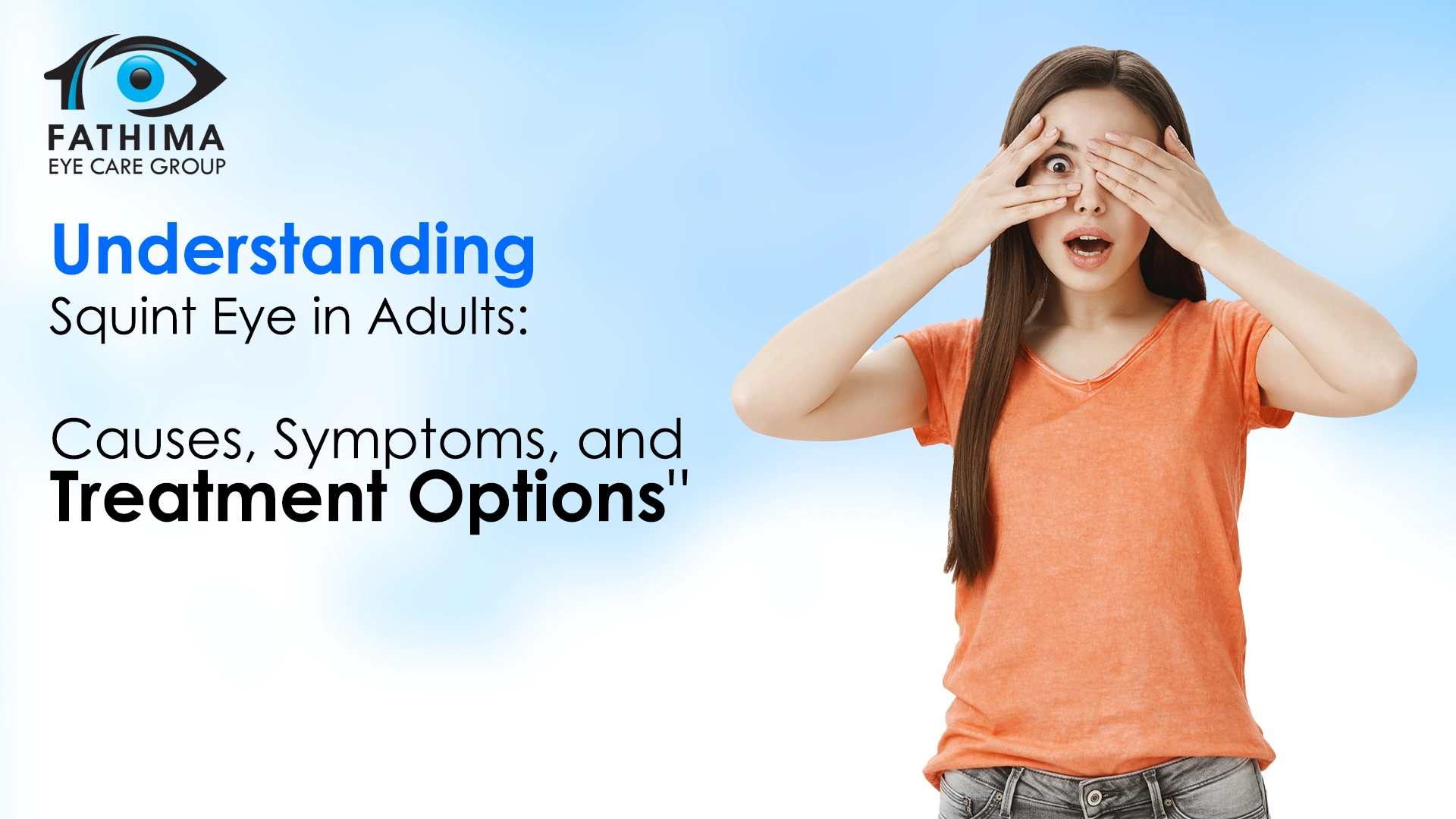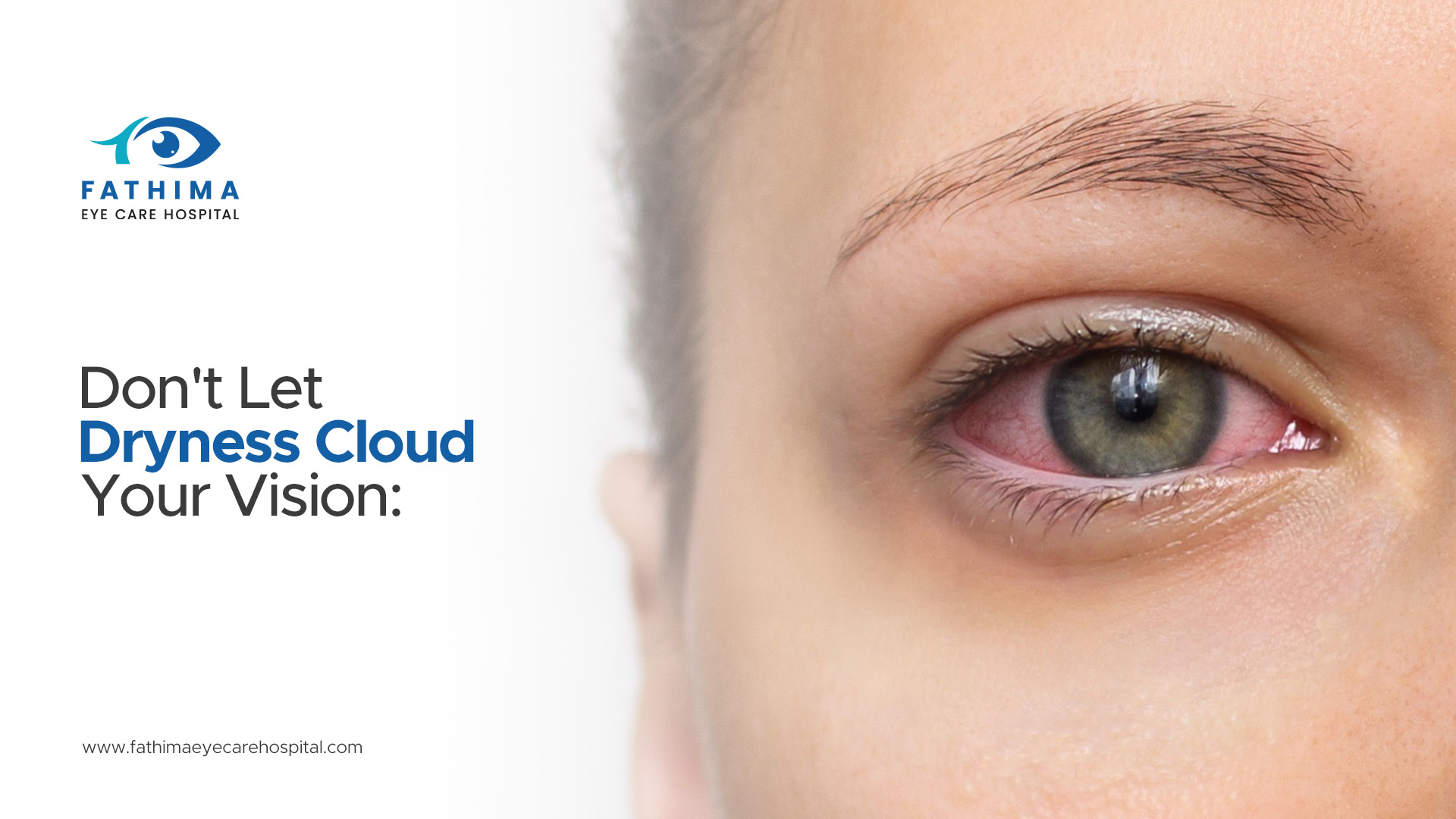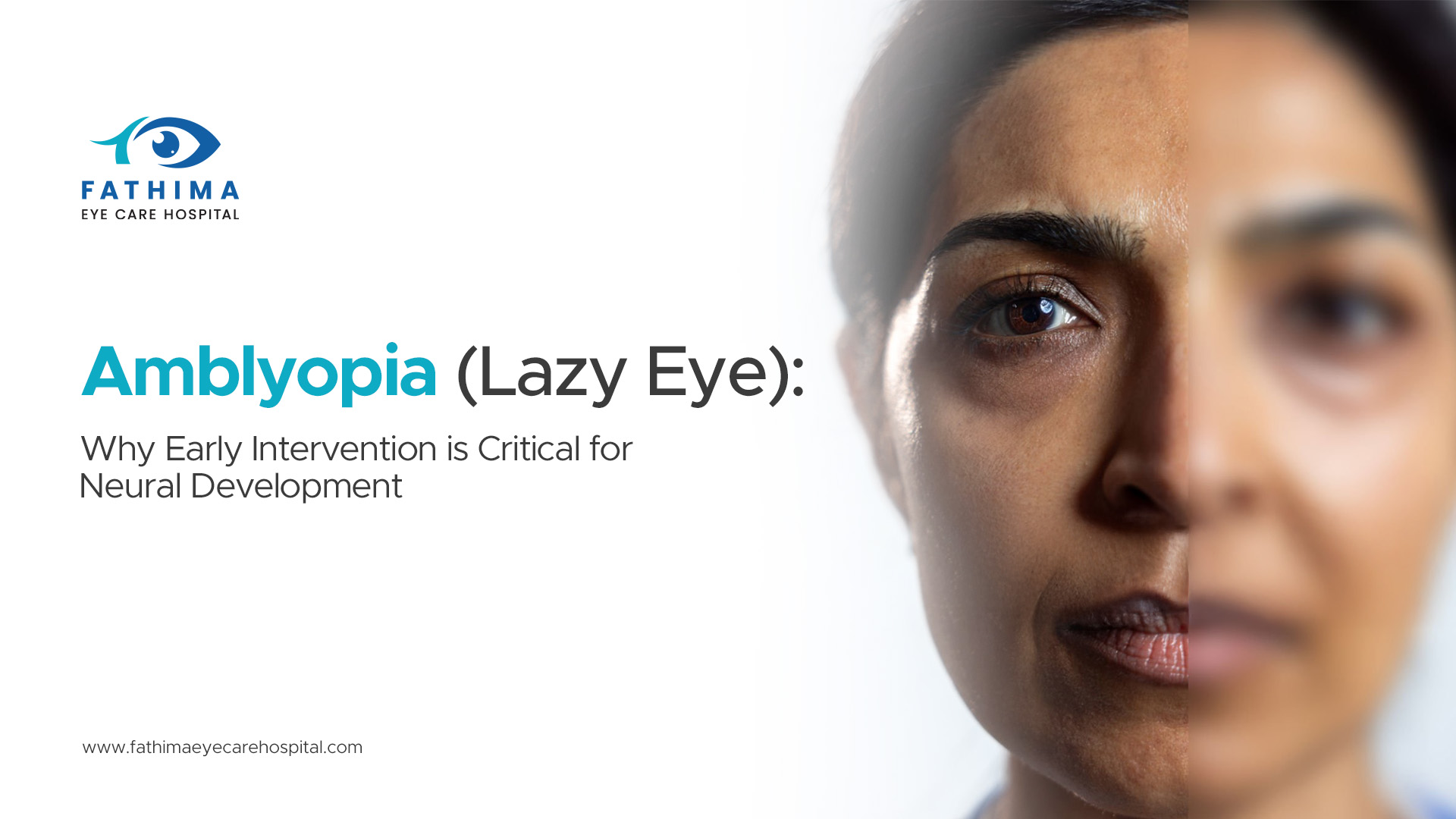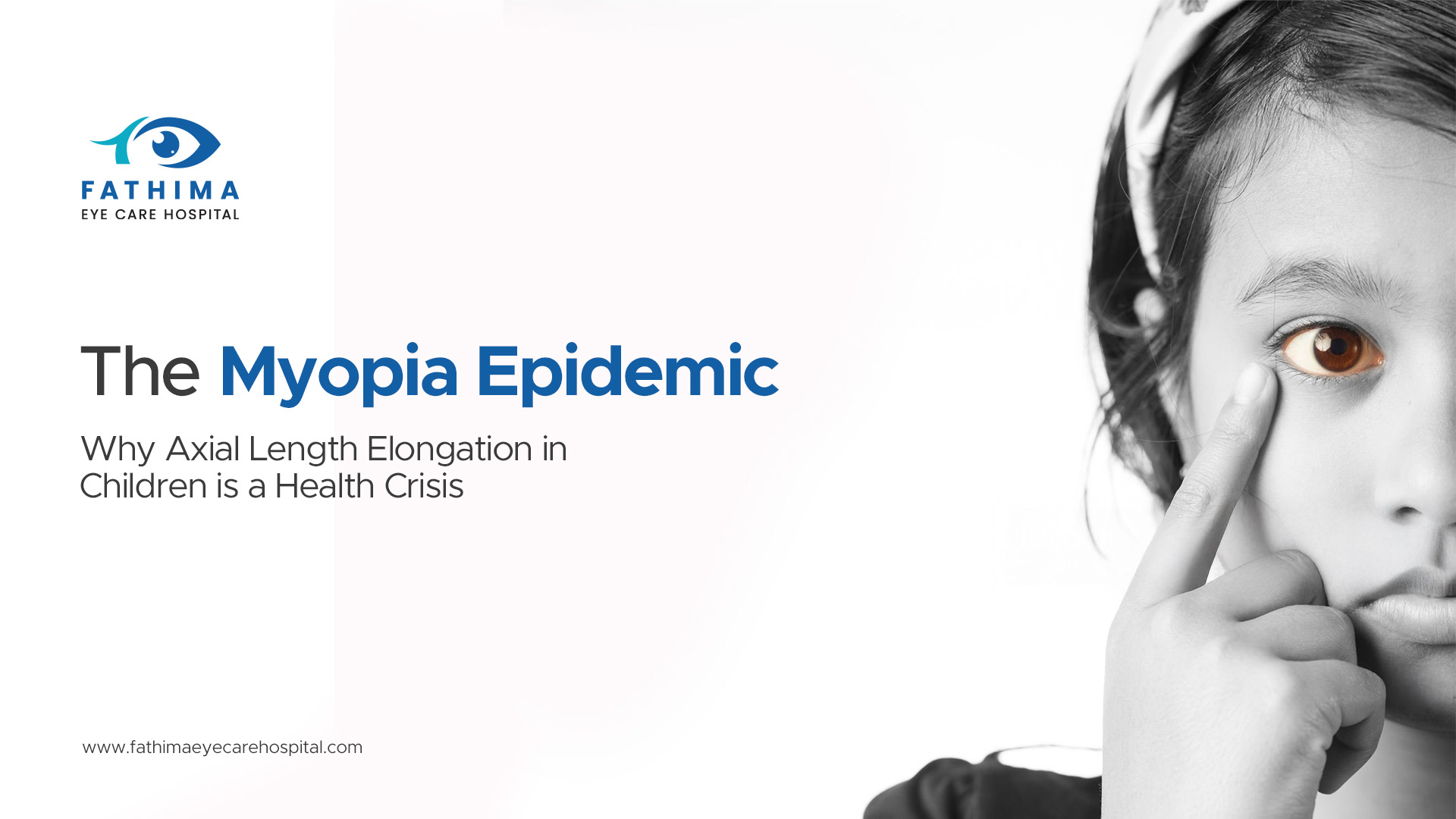

Have you ever seen someone squinting, trying their best to see faraway signs? Or experiencing difficulty in reading something? Thought of why they do so? For a lot of people, squinting is a common action done to hazy eyesight or under bright light. Such actions are a sign that they’ve Squint Eyes. However, is that something that should be taken lightly? What if this issue is a sign of an underlying eye condition? Let’s dive into the Squint eye treatment in adults, causes, and symptoms to gain clarity when it’s time to seek the help of an ophthalmologist.
Causes of Squint Eye in Adults
There are numerous causes of squint eye in adults. It can be as a result of damage to nerves or uncoordinated working of muscles around your eyes.
Your brain overlooks the signals from your weaker eye when it obtains distinct visual information from each eye. Eyesight of the weaker eye will be lost, when you don’t rectify the squint eye. Other causes of squint eye in adults include medical conditions such as stroke, cerebral palsy, or corneal abrasion. Many pre-existing conditions can trigger this condition as well, including amblyopia or hyperopia.

Symptoms of Strabismus
Eye misalignment: This is one of the most peculiar signs of strabismus, in which one eye points in a different direction.
Eye discomfort: a sense of weakness in or across the eye or a sensation of tugging.
Double vision: Those suffering from strabismus often report double vision, as the brain is presented with two distinct images from each eye.
Uncoordinated movement: The eyes may fail to move together easily; one could lag or move on its own.
Head turning: Those with strabismus attempt to use their eyes together, resulting in head tilt.
Closing one eye: Those with strabismus often close an eye, particularly in bright settings or while looking far away, to enhance visual clarity or lessen double vision.
Problem with depth perception: The condition can affect depth perception, making it hard to assess distances correctly.
Eye strain: People with Strabismus may experience eye strain and fatigue during reading or working on a laptop.
Vision loss: Individuals may experience either partial or complete vision loss.
The signs of this condition can appear periodically or constantly. Individuals who experience an unexpected appearance of squint should seek medical attention right away, as it may be a sign of an underlying health problem that requires Squint eye treatment in adults. Early intervention leads to more favourable and quick results for the patient.
Squint Eye Treatment in Adults
Botox Injections
One of the non-surgical squint treatment options include botox injections. Muscles in the eyes pivotal for its movement are injected with a substance called botulinum toxin. It weakens or paralyzes the targeted muscles, for proper eye alignment and enhancing coordination.
This is a great option for people looking for options other than Squint correction surgery for adults. The treatment lasts for about 10-15 minutes. Recovery time for the procedure is low, and people who took the injection resumes normal activities soon after the procedure.
Squint Correction Surgery for Adults
Squint correction surgery for adults is advised when the patient is unresponsive to other treatments or when he/she is suffering from extreme squint. Eyes around the muscles are adjusted for realigning them during this surgery, which is considered safe. Surgery, done on an OP basis, is usually successful in enhancing alignment of your eyes and for reestablishing binocular vision.
Individuals are asked to do exercises that sustain eye coordination after surgery. To cure squint eye in adults, multiple surgeries are required. You can resume normal activities within a couple of days after surgery.
Vision Therapy For Adults With Squints
Vision therapy for adults with squints is a complete treatment made to enhance visual skills and coordination. It includes eye exercises, equipment and computer-based therapies that can enhance brain-eye communication and strengthen eye muscle. If strabismus is a result of neurological or muscle weakness, vision therapy is proven effective.
It is often administered in combination with eyeglasses or eye surgery. Vision therapy is usually overseen by an ophthalmologist on a weekly basis where the duration of each session ranges from 30-45 minutes.

Eye Exercises For Squint in Adults
Orthoptic therapy is often advised for those suffering from mild squint. It’s an eye exercise pivotal in making eye muscles stronger and enhancing coordination, making the eyes aligned again. Methods such as concentrating on objects at distinct distances or using specialised tools can go a long way in training your brain for eye coordination. The best part about eye exercises is that they are made to be secure, straightforward and ideal for people of distinct ages and fitness levels. There are different types of eye exercises for squint in adults such as eye rolls, zooming exercises, video game based exercises, mirror play exercises and eye spy exercises.
Non-surgical Squint Treatment
Non-surgical squint treatment options include corrective lenses like glasses or contact lenses with benefits such as safety, minimal downtime, and suitability for all ages. They are effective when the cause of squint eye is farsightedness or if this condition is making the squint eye worse. Through corrective lenses that rectify these problems, eye muscle strain is minimised, resulting in enhanced eye alignment. If both near and distant vision is a problem for you, then bifocal or multifocal lenses are ideal, minimising the effort necessary for the eyes.
For squint correction, prism glasses are recommended. They work by bending light entering the eye. For weaker eyes, eye patching is beneficial, allowing the weaker eye to work well, enhancing eyesight and alignment. The prism eyeglasses are beneficial for proper vision, assisting those with slight double vision see a single image. Normal glasses can be fit with prism lenses to help align the images viewed by the eyes.
Fathima Eye Care- One of the Best Eye Hospitals for Squint Eye Treatment in Adults
As one of the best eye hospitals for squint eye treatment in adults, we concentrate on complete cure of squint eye in adults. Our skilled eye specialists perform a thorough eye exam to identify the root cause of the condition and suggest the ideal Squint eye treatment in adults, which include:
Vision therapy for adults with squints: Supposed to enhance eye coordination and muscle strength, this treatment option includes a set of exercises.
Non-surgical squint treatment: Some of the causes of Squint eye include nearsightedness or farsightedness, and the solution is corrective eyewear, which our doctors prescribe.
Botox injection: We perform botox injections that can make overactive eye muscles weak, letting the eyes to align well.
Squint correction surgery for adults: To rectify the underlying muscle imbalance and ensure right eye alignment, surgery is required.
Fathima Eye Care Hospital adopts state of the art surgical techniques and ultra modern equipment to ensure the least discomfort and best results. Rest assured that you get individualised attention throughout your squint eye ridding treatment journey.
Frequently Asked Questions
Does squinting cause vision problems?
Certainly. When ignored, squint eyes can result in various problems, such as double vision, lazy eye, and difficulty with depth perception.
Does strabismus indicate a severe condition?
Yes, particularly when it happens quickly and unexpectedly. If you have squint eye and out of a blue vision loss or body weakness together, you should get medical help.
How to prevent squinting in adults?
Although it’s impossible to prevent squinting that occurs due to genetic factors or aging. By seeking medical help early on, some issues like eye strain or double vision can be managed. The chances of developing a squint eye can be rectified with regular eye exams and resolving underlying health issues.
Do squint eyes go away after some time?
No. A majority of cases need early intervention to rectify the misalignment. Whereas for certain conditions, vision correction may help.






